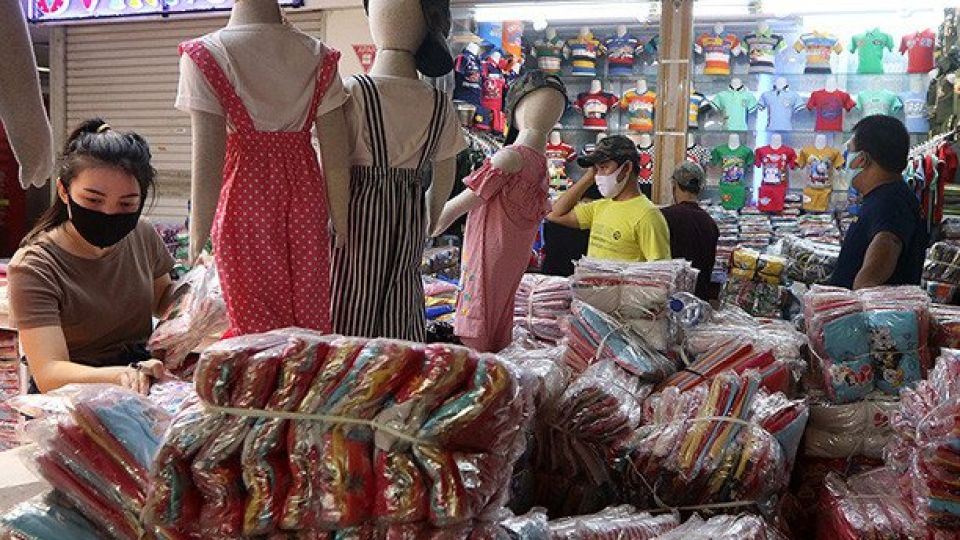March 2, 2023
JAKARTA – Headline inflation for February has come in higher than some analysts had forecast, while heavy rainfall and the upcoming Ramadan season will put upward pressure on consumer prices.
Despite the increase, however, annual inflation remains in the range of Bank Indonesia’s (BI) projection, and on a monthly basis, inflation actually eased slightly.
Statistics Indonesia (BPS) announced on Wednesday that the consumer price index (CPI) increased by 5.47 percent year-on-year (yoy) last month, faster than the 5.28 percent recorded in January.
However, the monthly inflation rate eased to 0.16 percent in February from the 0.34 percent increment logged in the preceding month.
Financial research firm Moody’s Analytics had projected a softening of inflation to 5 percent.
The annual rise in consumer prices in February was driven by higher costs for transportation, with BPS registering a yearly increase of 13.59 percent, largely due to a fuel price hike in September last year.
Meanwhile, prices in the food, beverages and tobacco segment last month were up 7.23 percent from February 2022.
Higher airfares pushed up the transportation category, while higher rice prices pushed up the food, beverages and tobacco category, as did a 10-percent increase in the cigarette excise that kicked in on Jan. 1.
Similar to last month, the city of Kotabaru in Kalimantan recorded the highest annual inflation rate in the country at 7.88 percent, while Bandung saw the biggest rise in Java at 7.5 percent.
According to Faisal Rachman, an economist at Bank Mandiri, the increase in headline inflation is also due to a base effect, as the CPI had posted a monthly drop in February 2022.
On the other hand, monthly inflation was down partly because of easing pressure in the food segment as the country had entered the harvest season, he said.
However, BPS put out a warning over heavy rainfall forecast in most areas, which may hamper agricultural production this month.
Core inflation, which has become the de-facto basis for BI’s interest rate policy, eased to 3.09 percent in February, dropping from 3.27 percent in January.
At that level, it is well below the 3.6 percent that marks the upper limit of BI’s target range for this year’s first half.
“[The slowdown in core inflation] was due to several factors, including the lower gold price, the appreciating rupiah’s exchange rate against the United States dollar and the [fact that the] second-round impact has diminished faster than expected,” Faisal explained on Wednesday.
Meanwhile BI expects full-year 2023 CPI growth to be 3.5 percent at most, especially given the base effect caused by the government-ordered increase in fuel prices last September.
Read also: BI stops hiking interest rates after months of hawkish stance
Last month, the central bank kept the benchmark rate at 5.75 percent after consecutive rate hikes over the preceding six months, and many economists took comments made by BI Governor Perry Warjiyo as a signal that no further hikes were on the cards.
Caution ahead of Ramadan
Pudji Ismartini, who is in charge of statistical services and distribution at BPS, urged caution going forward, given the typical seasonal rise in consumer prices during Ramadan.
The country saw a 0.68 percent hike in monthly inflation during Ramadan in 2019 and a 0.95 percent jump for Ramadan last year.
There were no such spikes in 2020 and 2021, when the government had imposed wide-ranging restrictions to public activities to contain the spread of COVID-19.
This year, Ramadan will start in late March.
“Commodities that have a dominant contribution to inflation every Ramadan include household fuel, cooking oil and chicken,” Pudji said in the BPS press conference on Wednesday.
Read also: Inflation softening to 5.28% further alleviates pressure on BI
Another warning pertains to rice prices, which have been climbing recently. According to BPS, the average rice price at retailers hit Rp 12,699 per kilogram last month, 10.41 percent more than in the same month of last year.
Farm gate paddy prices in February were down 0.99 percent compared with the previous month.
Pudji attributed the discrepancy to the low quality of grain due to heavy rain, which also resulted in higher operating costs.
Bank Mandiri’s Faisal maintained his prediction that annual inflation would keep easing going forward, with the exception of the March-to-April period due to the seasonal factor of Ramadan and the Idul Fitri holiday.


